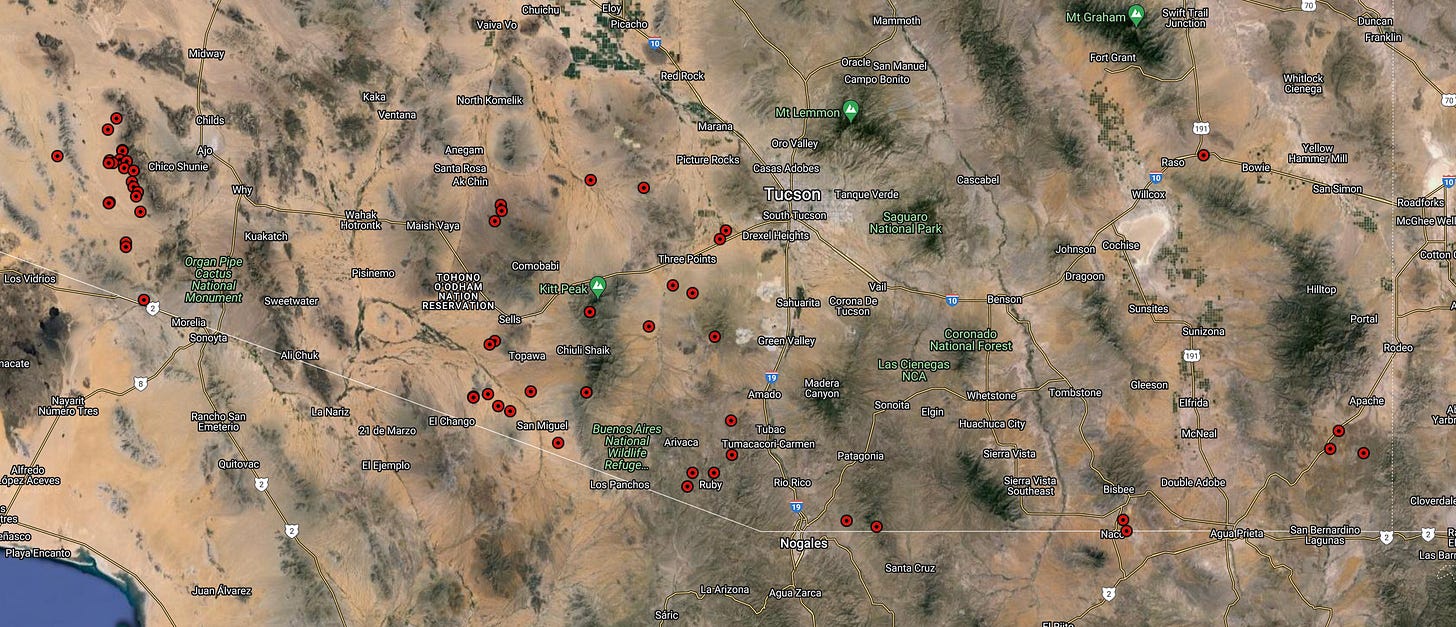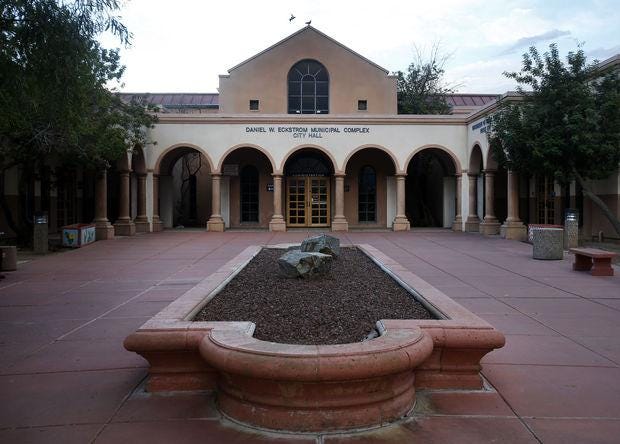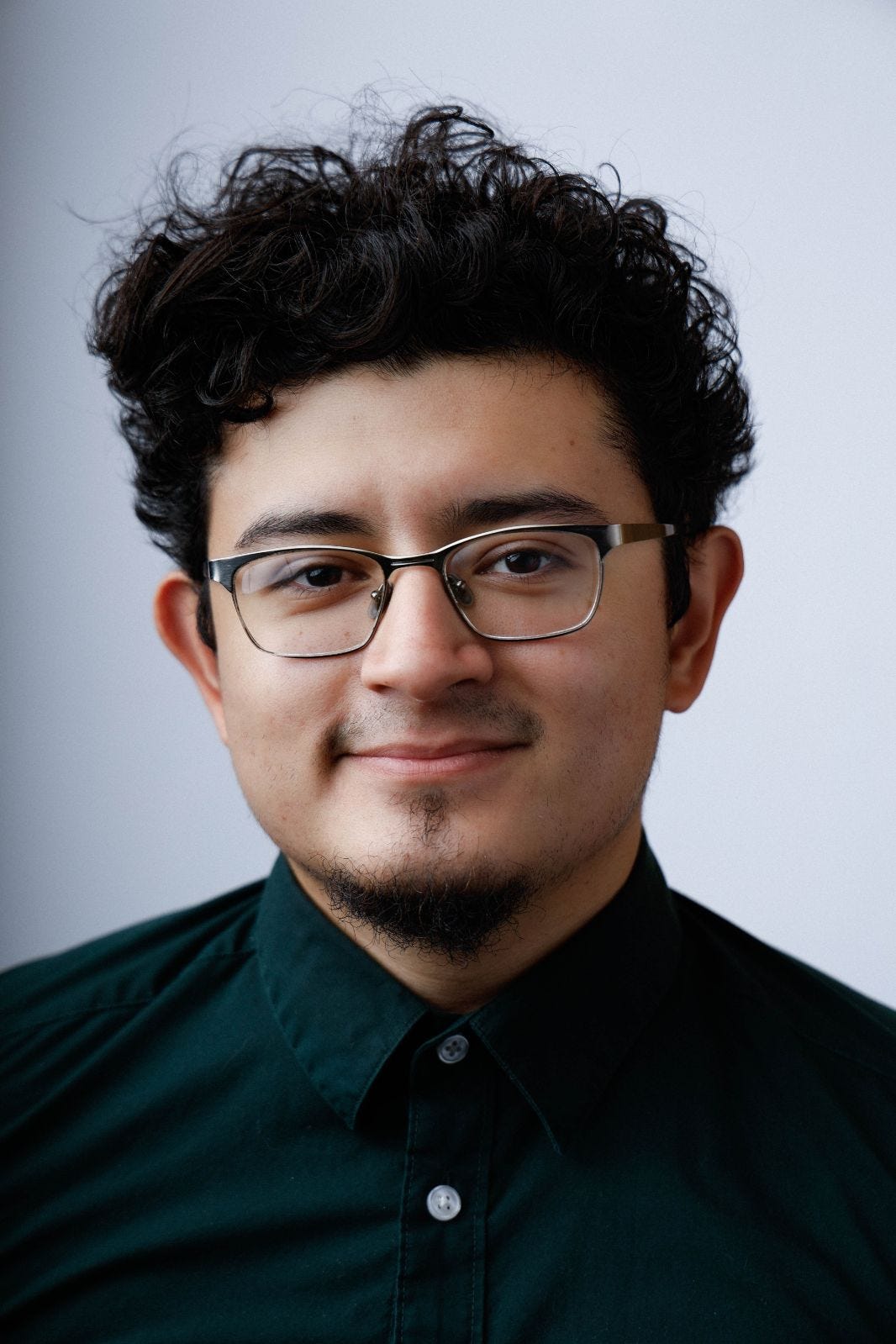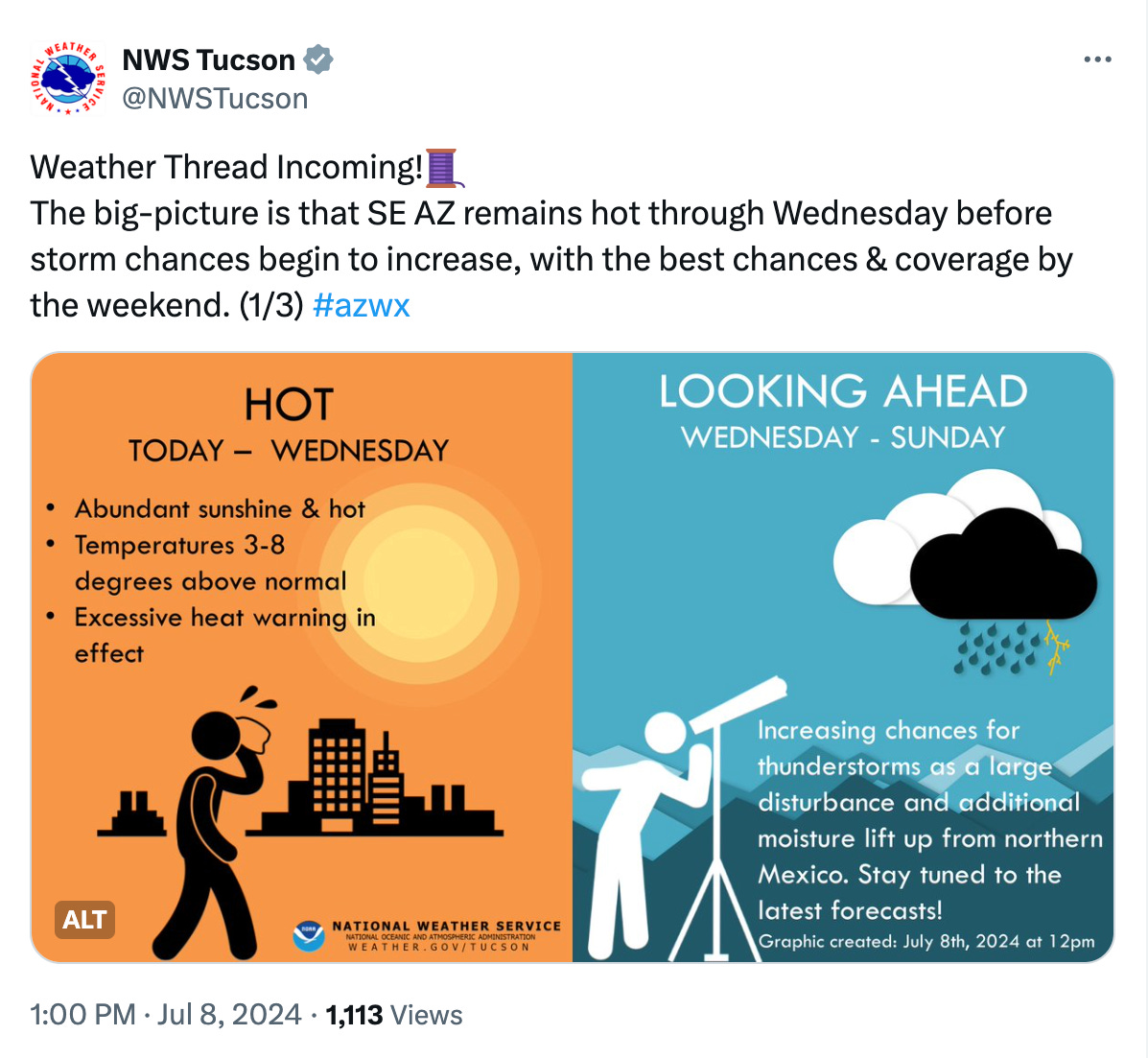The Daily Agenda: Meet the rest of the South Tucson hopefuls
Seven candidates are vying for four council seats in South Tucson … Today, we’re introducing you to the final four ... Heat turns deadly in Pima County.
The race for South Tucson City Council is a competitive one and with so many candidates, we couldn’t fit them all into a single edition.
Yesterday, we published Mayor Paul Diaz and candidates Melissa Brown-Dominguez and Tim Escobedo’s answers to three questions: What is the biggest problem facing South Tucson? What are your priorities if elected? Why do you believe you are qualified to lead the City of South Tucson?
Today, we’re back with the remaining four candidates, and just like the last set, we’ve translated their answers into Spanish. Please feel free to share them with your Spanish-speaking friends and family members.
Scott Sears is a South Tucson business owner and resident. He frequently attends council meetings and actively voices his concerns about what he calls city council transgressions. He currently works in construction operation management and was appointed to the Citizen’s Bond Committee to make recommendations on the fire budget in South Tucson.
For Sears, the biggest problems facing South Tucson are development, growth and homelessness.
He says sales taxes are higher than ever, and that prevents people from wanting to open a business. His priority would be to lower taxes and find other ways to entice new businesses to move to South Tucson, but he didn’t specify how he would accomplish either.
He also took a shot at a trio of current council members and Interim City Manager Veronica Moreno, saying he’s qualified to lead the city because it needs a council “that’s not led by Casa Maria group and a city manager that (holds) meetings … for their own agenda.”
Council members Roxanna Valenzuela, Cesar Aguirre and Brian Flagg are all part of the leadership team at Casa Maria Soup Kitchen, a Catholic nonprofit that works to create decent affordable housing in South Tucson. And Moreno has been the subject of recent criticism for holding several roles with the city.
Pablo Robles is a housing counselor for Chicanos por la Causa. He says he’s heard from community members that public safety is their biggest concern and the biggest issue in the city. He said residents no longer feel safe in places they once did and asks whether it does any good to bring in new businesses if no one feels safe.
He says the city council needs to review the available options to help people stay in their homes, support first-time buyers, protect renters and stabilize the community. He wants to work with community partners to put the city and residents in a better position, with more safe and secure housing, and also wants to rebrand South Tucson.
“As far back as I can remember, South Tucson has been talked about as a bad place, somewhere you wouldn't want to live. But ever since we got the opportunity to live here, I've seen a different story,” Robles said in an email. “South Tucson has so much beauty and culture and life to offer, we just want to make that known. I want to change the story to reflect the South Tucson that those of us who live here see.”
A first-time candidate, he stresses that he is not running to climb the government ladder.
“The barrio is my home,” he said. “I am not running for council as a stepping stone for something beyond my city, I'm running so that my city can make things a little easier for the coming generations, while also celebrating and taking care of the generations that got us to where we are today.”
Herman Lopez is the city’s vice mayor and one of two council members running for reelection, along with Mayor Diaz. He’s an army veteran who retired from the University of Arizona as a logistics program coordinator after 28 years. He was appointed as a councilmember in 2014 and had a much different response to our questions than the six other candidates (his response is written as we received it.)
“I really can not speck about the city issues, or my Ideas as where If I tell you then our campaign would be comprise,” Lopez wrote in an email. “Some issues could not be spoken because the issues are still in being resolve, waiting for election results. I suggest to ask the questions to another council person that is not running.”
We clarified that these questions were being sent to every candidate to provide readers with information about their platforms and priorities and followed up a third time, but received no further response.
Knowing where candidates stand on issues shouldn’t be complicated. By becoming a paid subscriber, you are investing in a future that advocates for election and candidate transparency.
Dulce Jimenez is married to Robles and says that the values that helped her choose a career in public health also motivated her to run for public office. She said she wants people to be healthy, happy and fulfilled.
“I represent a newer generation and hope that I can use my experiences to dream big and help move us forward,” Jimenez said, adding that South Tucson is stuck and residents are hurting. “We have been economically and politically stagnant for a while, and it's time for a change. A change that will make our streets and neighborhoods safe and will provide resources for those who want help.”
Jimenez said that when it comes to improving the community, no action is too small or too big to try, “from fixing streetlights to addressing abandoned properties to ensuring we have funds for our city's public safety departments.”
Her priorities include reinvesting in fire, police, public works and other areas needed to make the community safer. She says she wants to address housing concerns head-on by supporting renters and homeowners and create resources for people on the streets to get secure housing and jobs.
Jimenez also wants to seek opportunities for economic growth and stability by supporting local and small businesses and hopes to elevate the rich culture, history and beauty of South Tucson by keeping neighborhoods clean and organizing community events.
Just like the other local races, South Tucson’s primary will be held on July 30 and its general election November 5. After the results are certified, the new council will meet to choose a mayor and appoint officers.
And we’ll be right there with them.
Susan's work with the Tucson Agenda is supported by the Local News Initiative of Southern Arizona, a fund of the Community Foundation for Southern Arizona.
Still some work to do: Budget season isn’t quite over yet for some local government bodies, Tucson Sentinel columnist Blake Morlock writes. The governing boards of three local school districts — Amphitheater, Tanque Verde, and Catalina Foothills— are scheduled to vote on their budgets in the next week or so, and the South Tucson City Council is scheduled to do the same.
Deadly temperatures: Heat played a role in the deaths of 16 people in Pima County in June, including nine people classified as undocumented border crossers and three who were experiencing homelessness, Arizona Public Media’s Zachary Ziegler reports. June’s total was higher than the 13 in June 2023, according to county medical examiner records. The county saw 14 days in June when the temperature topped 105 degrees, which doubled the total from the previous June.

Making their case: Pima County Attorney candidate Mike Jette makes his case to voters in an op-ed in the Arizona Daily Star, while former Sheriff Mark Napier says in an op-ed in the Sentinel that Heather Lappin’s ethics and professionalism make her the best candidate in the Republican primary for sheriff.
Spooked by the fireworks: More than 130 dogs and 80 cats were turned in to the Pima Animal Care Center since the Fourth of July holiday, KGUN’s Blake Phillips reports. PACC has an online portal where you can see if one of your animals ended up at the shelter, where staff say they often see a surge after the fireworks.
“Especially in the times that are typically a day, two days after the actual holiday. The reason for that is often dogs will get spooked and run and hide, and then they tend to hunker down, hide for a little while, and then start coming out looking for food and water,” says Kayleigh Murdock, public information officer at PACC.
More bang for the buck: The City of Tucson is charging more for building permits and business owners want better service, the Arizona Daily Star’s David Wichner reports. The city says the higher fees are needed to boost staff and improve that service. In the years since the height of the pandemic, turnaround times on simple permits lengthened. Tucson Metro Chamber President and CEO Michael Guymon said shortening turnaround times was a key improvement he’d like to see.
Taking some time off: In case you start wondering why there isn’t much news coming out of the Tucson City Council this month, the council canceled its regular meeting and study session tomorrow, and the ones scheduled for July 16, due to an anticipated lack of a quorum.
2,285: Voters who live in the City of South Tucson, according to the Pima County Recorder’s Office.










So, it's Robles vs. Jimenez and they are married to each other? I don't understand. Ordering take-out must be a struggle.